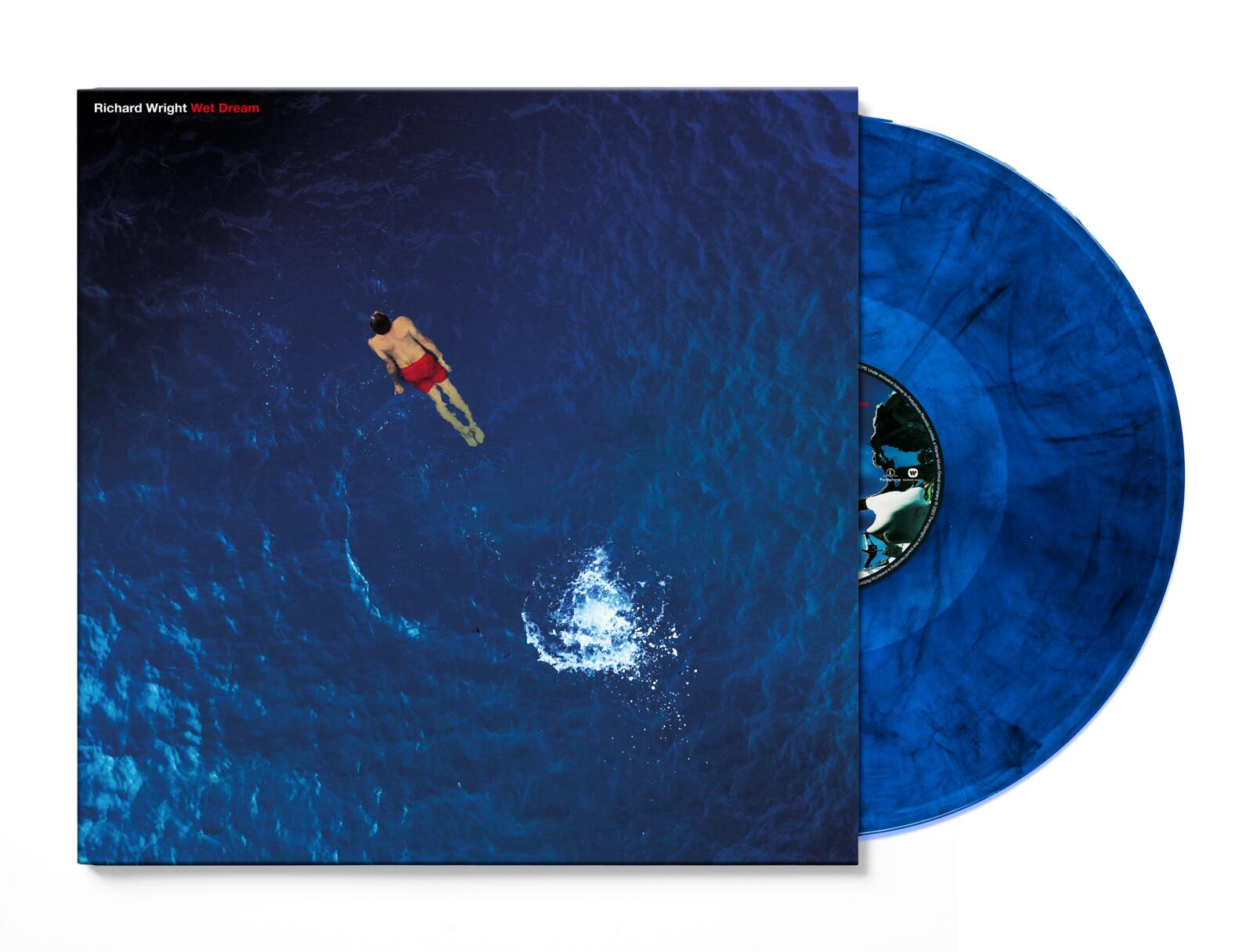Richard Wright’s “Wet Dream” Gets Reevaluated
The solo debut of Pink Floyd’s keyboardist receives a remix
 1977 was a turbulent year for Pink Floyd. With bassist/primary songwriter Roger Waters asserting more of a dictatorship role, the band slowly drifted from being a collaborative unit. The rise of punk rock made Pink Floyd and many of their progressive rock contemporaries to be considered “dinosaurs.” In turn, the murky production value and Orwellian political themes explored on their then-new album, Animals, was their response to the shifting musical climate. The connection between Pink Floyd and their audience was lost during their In The Flesh tour from the same year. Rather than enjoying the band’s spectacle of flying pigs and inflatables, the raucous audiences were more concerned with setting off fireworks and riding hallucinogenic highs. This tension culminated with the infamous final show of the tour at Montreal’s Olympic Stadium, where Waters angrily spat at a member of the audience.
1977 was a turbulent year for Pink Floyd. With bassist/primary songwriter Roger Waters asserting more of a dictatorship role, the band slowly drifted from being a collaborative unit. The rise of punk rock made Pink Floyd and many of their progressive rock contemporaries to be considered “dinosaurs.” In turn, the murky production value and Orwellian political themes explored on their then-new album, Animals, was their response to the shifting musical climate. The connection between Pink Floyd and their audience was lost during their In The Flesh tour from the same year. Rather than enjoying the band’s spectacle of flying pigs and inflatables, the raucous audiences were more concerned with setting off fireworks and riding hallucinogenic highs. This tension culminated with the infamous final show of the tour at Montreal’s Olympic Stadium, where Waters angrily spat at a member of the audience.
The members of Pink Floyd spent the first half of 1978 on sabbatical pursuing various outside projects. Out of the flurry of individual activity, the release of keyboardist Richard Wright’s debut solo album, Wet Dream, came with the smallest fanfare. What flew over the heads of both fans and critics was an album that showed Richard Wright’s importance to the DNA of Pink Floyd’s sound.
Minimoogs and harmonized guitars bring the track “Mediterranean C” into classic Floyd territory. The arpeggiated piano chords lay the foundation to allow the saxophone and guitar solos to do the talking on “Cat Cruise.” The swaying “Waves” has an arrangement similar to “Cat Cruise,” with established main themes and improvised solos. The Hammond organ found on “Drop In from the Top” gives the song a bluesy feel. These instrumentals inhabit a lucid spirit found on later-era Floyd albums, such as The Division Bell and The Endless River.
Wet Dream offers some distinctive musical flourishes outside the Floyd musical mold. “Mad Yannis Dance” is a waltz that builds on minor chords and scales to create an ominous atmosphere. Wright’s jazz influence comes across on the album closer “Funky Deuz,” a brewing slice of fusion with some exceptional basslines from Larry Steele.
The reed-blowing magic Dick Parry made on The Dark Side of the Moon and Wish You Were Here is replicated on all of the instrumental tracks by former King Crimson saxophonist Mel Collins. Pink Floyd touring guitarist Snowy White has a similar tone to David Gilmour’s, but provides more rapid fingerwork across the fretboard. Reg Isidore’s drumming is “busy” at moments, but the feel is still loose to sound similar to Nick Mason’s style.
Wet Dream is where Richard became a primary lyric writer for the first time since Pink Floyd’s soundtrack excursion Obscured By Clouds. The platonic or romantic conflict themes run throughout tracks like “Against The Odds” and “Summer Elegy.” His love for vacationing at the Greek islands and sailing is exemplified in “Holiday,” which provides some positive lyrical contrast. “Pink’s Song,” penned by his then-wife Juliette, is a tribute to Pink Floyd founder Syd Barrett, a figure troubled with psychosis driven by lysergic misuse. These songs feature Wright on lead vocals, who offers a soft and subtle vocal delivery.
Coveted by diehard Floyd enthusiasts, Wet Dream was reissued in the early 1990s in the USA and Japan only on CD. After being out of print for years, remix guru Steven Wilson breathes fresh life into the album. As with most of his remixes for other artists like Yes, King Crimson, and XTC, he respects the original mix and doesn’t take unforgivable liberties. The soundstage is broad, with every element of the mix sounding more forward and direct as if removing a layer of dust. Steven Wilson also reinstates some extended musical passages left out of the original mix, such as an extra 30 seconds of Snowy White’s guitar solo on “Cat Cruise” and an extra 50 seconds of Mel Collins’ saxophone solo on “Waves.” The original mix will always be the basis of comparison, but could this remix be the new default?
 A new mix deserves a fresh look, so a modern rendering by Carl Glover of Aleph Studio replaces Hipgnosis’ original design. Purists don’t have to fret because the original Hipgnosis design features on the 4-panel insert. The gatefold jacket features a soft-touch coating, which feels rather deluxe. The gorgeous marbled blue colored vinyl, housed in a poly-lined sleeve, matches the nautical motif of the artwork and plays back as quietly as ever.
A new mix deserves a fresh look, so a modern rendering by Carl Glover of Aleph Studio replaces Hipgnosis’ original design. Purists don’t have to fret because the original Hipgnosis design features on the 4-panel insert. The gatefold jacket features a soft-touch coating, which feels rather deluxe. The gorgeous marbled blue colored vinyl, housed in a poly-lined sleeve, matches the nautical motif of the artwork and plays back as quietly as ever.
Steven Wilson also mastered his mix, which is pleasantly dynamic. However, Barry Grint of Alchemy Mastering emphasizes the bottom end of the vinyl cut to the point where the higher frequencies are sometimes lost. This demerit doesn’t draw too much away, as the pressing is still rich in tonality to provide a pleasant listening experience.
While Roger Waters’ thematic lyrics and David Gilmour’s ethereal guitar work are distinguishable Pink Floyd trademarks, Richard Wright’s instrumental contributions were crucial to their instrumental zeitgeist; Wet Dream proves that.












































